- Soil Association
- Farmers & growers
- Farming case studies
- Case study: Peter Cheek, Godminster Organic Dairy

Peter Cheek, Godminster Organic Dairy
Peter Cheek, farm manager, Godminster Organic Dairy
This mixed organic dairy farm in Bruton, Somerset, spans 1,200 acres of owned and rented land, and hosts 300 cows split between spring and autumn calving blocks. When Peter Cheek took over management in March 1998, the farm was halfway through its organic conversion. Today, it produces organic milk, own-brand Godminster cheddar cheese and winter oats grown for milling.
Previously, Godminster was a traditional grass-based dairy farm with some cereals and maize. But current owner Richard Hollingbery was adamant he wanted an organic set up driven by a desire for sustainability and sense of environmental responsibility.
The journey towards agroecology
The first certified organic milk left the farm in July 1999. Since then, Godminster has continued innovating with agroecological practices, including introducing a livestock breed well suited to organic production - a British Friesian-Scandinavian-Fleckvieh/Normande herd cross. Practices such as min-till, the establishment of herbal leys and the planting of miles of hedgerows and woodland have enabled biodiversity on the farm flourish.
But it hasn’t all been plain sailing. Peter recalls, “The first five years were a bit of a blur … we made a lot of mistakes … We are still getting too many grass weeds within the cereal crops. Some would advocate we should plough once in seven years [as part of the rotation], but I’m just a bit too stubborn for that at the minute, we will see how we go”.
Peter has found that talking to peers with a similar interest in agroecological principles has been key to overcoming challenges, tackling the steep learning curve together, and accepting mistakes will be made.
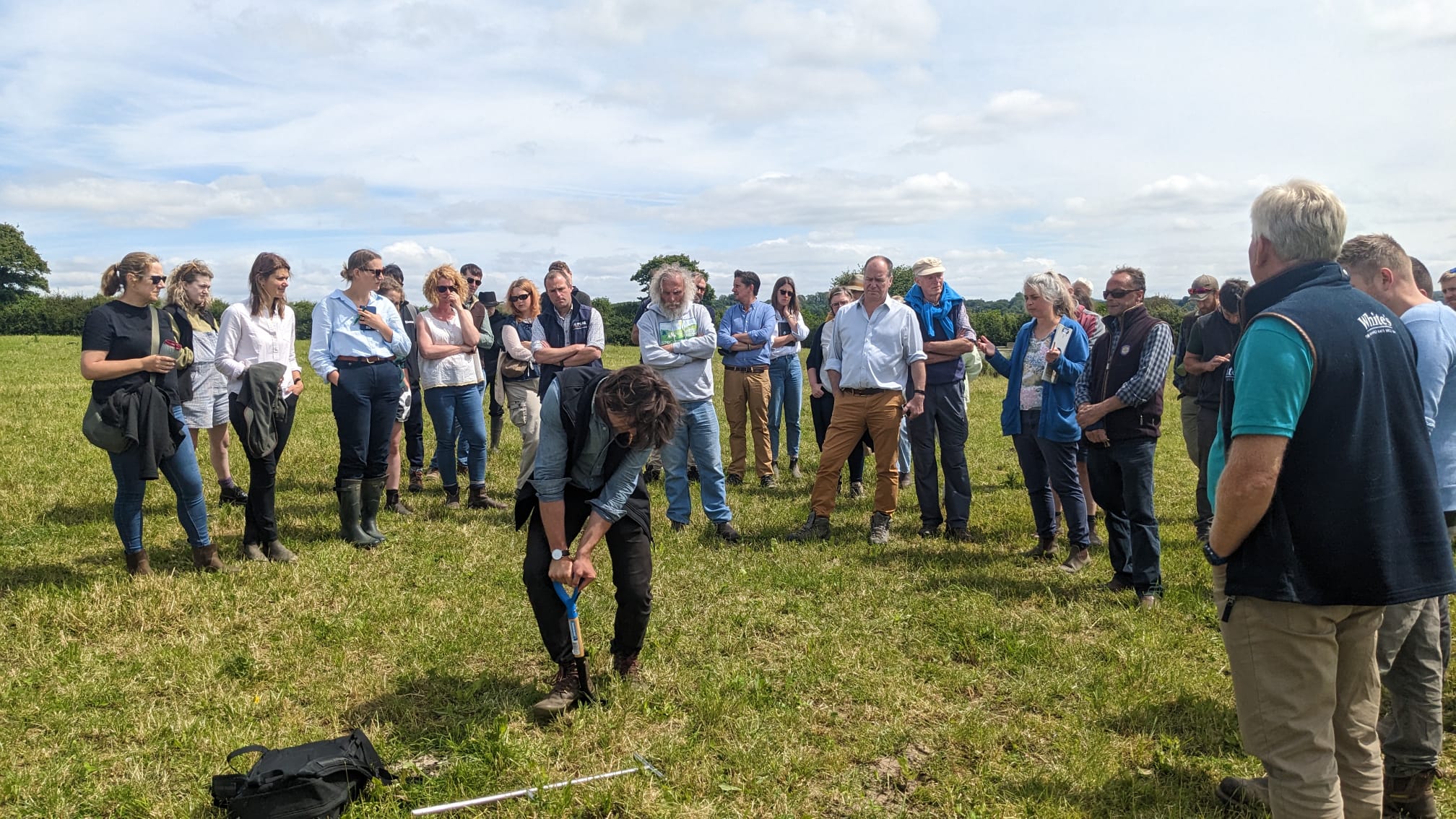
Farm walk at Godminster
Find out more about agroecological practices employed at Godminster Farm:
Soil health
Min-till has reduced soil disturbance and improved soil structure, while herbal leys improve nutrient and moisture balance and increase organic matter.
Peter says, “The rotation with herbal leys seems to be perfect for this farm, and it’s great to offer cows diversity in their diets, along with carbon storage, bringing minerals up to the surface. The benefits of herbal leys are enormous”.
The farm has made strides forward in cultivating seed beds at each stage of the rotation and experimenting with herbal ley seed mixes for different fields and soil types.
"After 25 years, the soil has become much more friable," Peter notes, meaning it’s well adapted for water, nutrient and organic matter retention. Data collected through regular soil sampling and monitoring has evidenced these observations - there have been significant improvements in carbon sequestration, biodiversity, soil health, and water management.
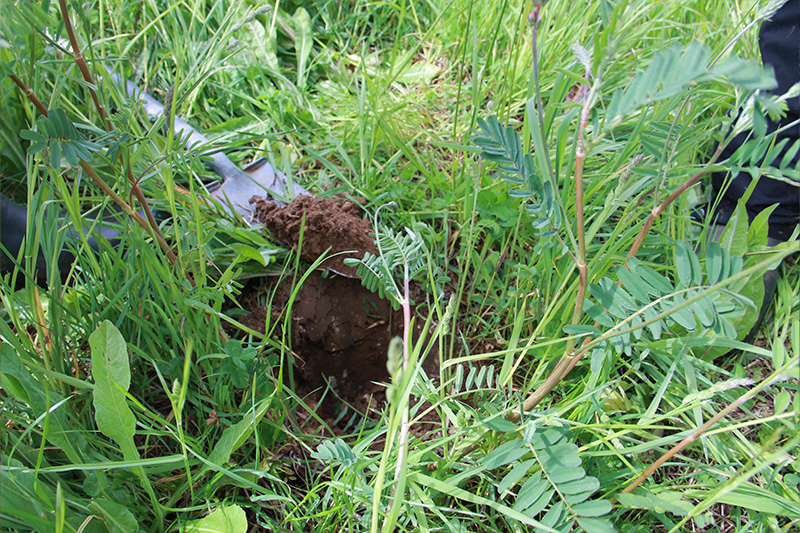
Herbal ley
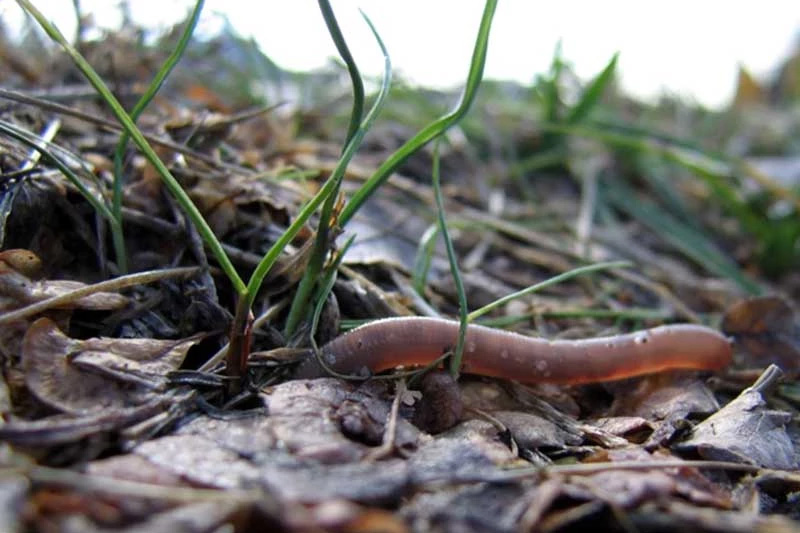
Earthworm in soil
Improved animal welfare
Godminster’s rotational grazing (for around 8 months a year) helps to promote animal well-being. The farm has reduced their reliance on bought-in concentrate, and instead focus on producing quality forage. This has been complemented by careful breed selection, to ensure the livestock are resilient and well suited to their organic grass-based system.
“We now have a cow that’s six inches shorter, carries a bit more condition, doesn’t go as lame, doesn’t get as much mastitis and is a lot more hardy.”
Improving biodiversity and water quality
Peter has introduced measures to support biodiversity and improve the quality of the water leaving the farm. “We have been heading towards bigger hedges, more woodlands and ponds to enhancing wildlife, trying to achieve abundance”. The larger hedges and woodlands are providing more habitat for increased bird numbers on the farm, with Peter using Chirrup to identify and monitor bird abundance.
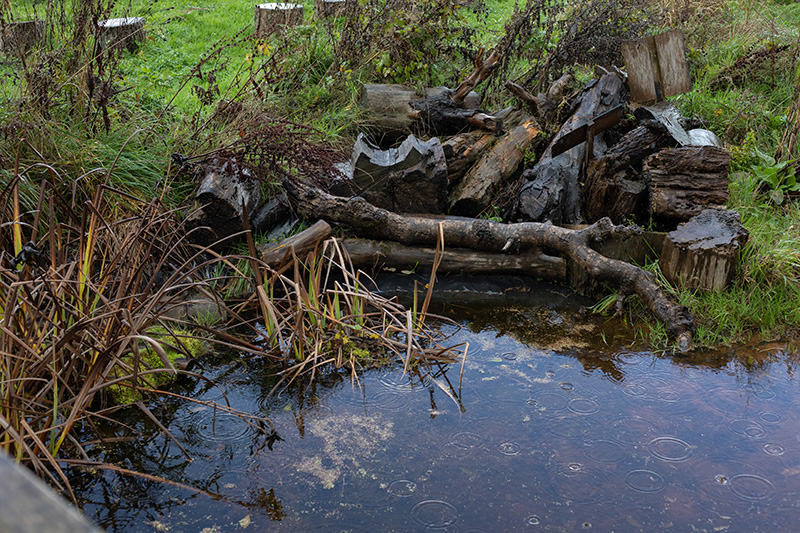
Pond to encourage wildlife
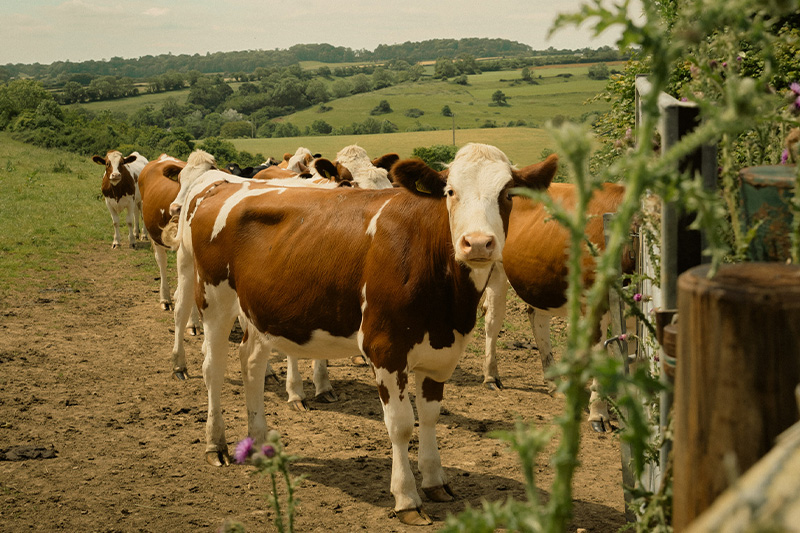
Cows at Godminster
Why agroecological practices are good for business
The farm is continually evolving, exploring new markets, trialling bi-cropping, and making the most of government incentives for sustainable farming. These approaches help mitigate market fluctuations, improve data management, and support the adoption of new technologies to boost efficiency and growth.
Less reliance on external inputs has stabilised costs while a diversification of products has increased profitability. Peter notes that these, “definitely add resilience without a shadow of a doubt."
How agroecological practices benefit farmers on a personal level
Peter farms in a way that works with nature, which he says has helped him connect to the land and feel a sense of purpose in farming.
"To farm with nature, you need to be dynamic with your approach, thinking about the whole-farm as a circular system … I can remember when we first started showing a guy a crop of Triticale that was absolutely riddled with aphids and he said, ‘it's finished, it's done’. He came back a fortnight later and all he could find was ladybirds. He couldn't believe his eyes. That’s organic farming. I thought, ‘yeah we've got this."
This patient and reflective style of farming benefits everyone, planning in 'simple systems' that work for their calendar and work-life balance.
Find out more
We're using the term 'agroecology' in a very specific way in relation to farming, referring to 'whole farm' systems that benefit nature, animal welfare, soil health and climate resilience. This is just part of its full definition, which you can read more about here.
More low input farming advice can be found here.
